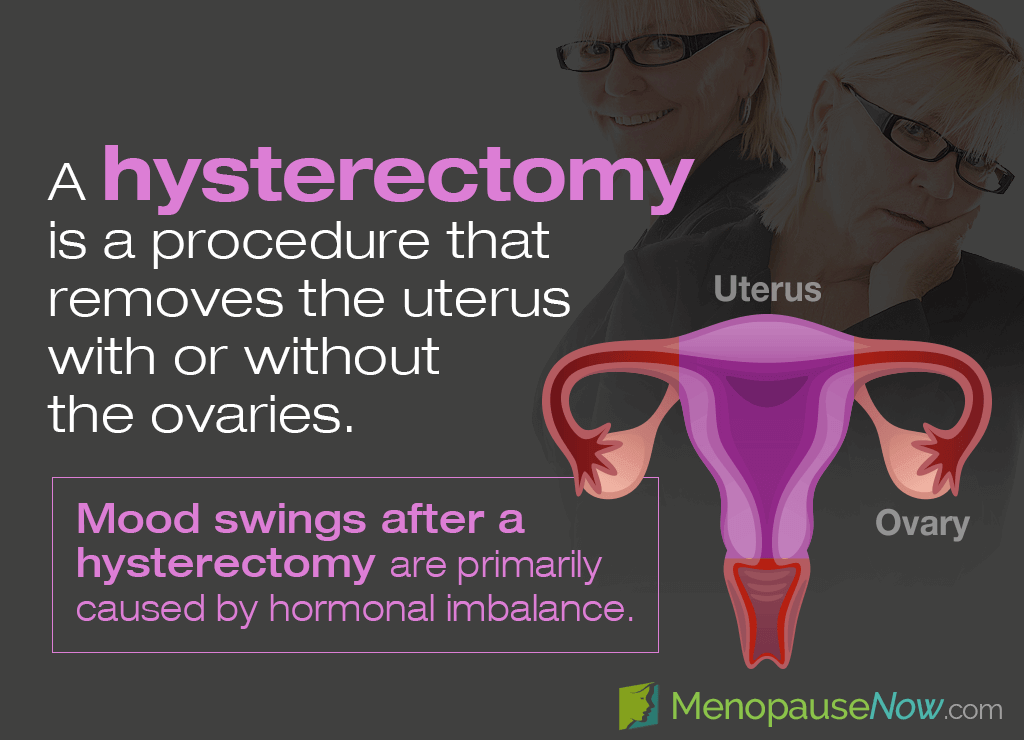Mood swings among middle-aged women are typically caused by the hormonal imbalance taking place during menopause. However, some women may experience mood swings after a hysterectomy for similar reasons.
Find out more about mood swings after a hysterectomy below, including other side effects of the operation and what treatment options you can pursue for ultimate relief and mood stability.
What is a Hysterectomy?
A hysterectomy is a procedure that removes all or part of the uterus due to one of various medical reasons, such as uterine fibroids, cancer, abnormal vaginal bleeding, endometriosis, or several others.
Some women may also have their ovaries removed during this operation. This is known as an oophorectomy.
A woman will begin the menopause transition immediately if the ovaries are removed, which is known as surgical menopause. Those who undergo only a hysterectomy may enter surgical menopause within five years of the surgery.
What Causes Mood Swings after a Hysterectomy?
Physical causes
Mood swings after a hysterectomy are primarily caused by hormonal imbalance. Although the ovaries are the principal reproductive organs in charge of hormone production, the sudden removal of an important part of the reproductive system can wreak havoc on normal bodily operations, leading to temporary hormonal disequilibrium.
These fluctuating levels of estrogen and progesterone in the body can negatively impact levels of serotonin. Serotonin is a neurotransmitter commonly known as the “feel-good” hormone that helps regulate mood. When it's imbalanced, mood swings ensue.
Also, as a result of a hysterectomy, some women may experience incontinence because many of the same muscles used to support the bladder may be affected during surgery, further distressing her and possibly evoking negative moods.
Emotional causes
Without a doubt, undergoing a hysterectomy is a stressful event.
However, additional unpleasant menopause symptoms - such as fatigue, night sweats, irritability, vaginal dryness, etc. - can cause more emotional distress and provoke mood swings.
Furthermore, women who have major surgeries, like hysterectomies, may experience more instability in their lives, thus affecting their relationships, happiness, and overall quality of life.
More so, others have difficulty communicating with their loved ones and vice versa during the healing process, leading to a lack of emotional support and further changes in mood.
How to Treat Mood Swings After a Hysterectomy
If a woman experiences any symptoms after a hysterectomy, she should consult a doctor. There are many treatment options for mood swings and some of the other hysterectomy side effects.
Naturally, the most effective line of treatment tackles the underlying cause of mood swings, hormonal imbalance.
Click on the following link for more information about effective mood swing treatments.
Sources
- Amin, Z. et al. (2005). Effect of estrogen-serotonin interactions on mood and cognition. Behavioral and Cognitive Neuroscience Reviews, 4(1), 43-58. doi: 10.1177/1534582305277152
- NHS. (2016). Considerations: Hysterectomy. Retrieved January 23, 2019, from https://www.nhs.uk/conditions/hysterectomy/considerations/
- The North American Menopause Society. (n.d.). Instant Help for Induced Menopause. Retrieved January 23, 2019, from https://www.menopause.org/for-women/menopauseflashes/menopause-symptoms-and-treatments/instant-help-for-induced-menopause




